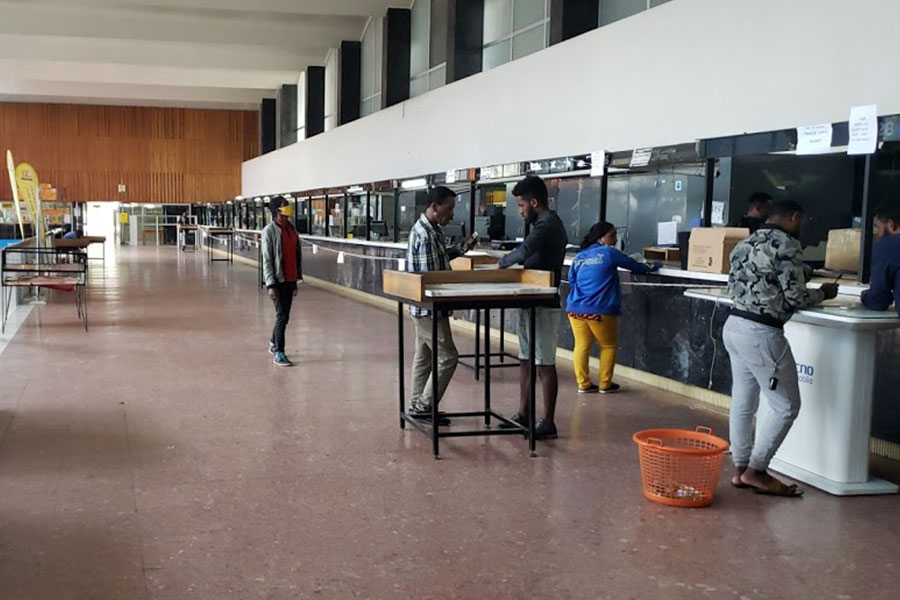
Viewpoints | Aug 13,2022
Zewditu Memorial, Yekatit 12, Menelik II, Ras Desta Damtew Memorial and Tirunesh Beijing hospitals under the Addis Abeba Health Bureau are getting ready to outsource a host of their clinical and non-clinical services to the private sector.
Officials disclosed outsourcing the services will begin after preliminary arrangements are complete indicating that it falls in line with the city-wide initiative to incorporate Public Private Partnerships (PPPs) and improve the quality and consistency of health care.
Yohannes Chala (MD), head of the Bureau, says the scheme under the purview of the city administration will call for bids from eligible applicants for rendering of specific clinical and diagnostic services with pricing details determined after financial studies are done.
"This is what PPPs would look like in the health sector," Yohannes told Fortune.
He stated that allowing the private sector to participate in the provision of medical care would seal gaps observed in service and medicine accessibility to patients.
Yohannes insinuated that while complete privatisation is not part of the plan, it has not been ruled out as part of a long-term strategy.
A study by Colombia University's Mailman School of Public Health indicates that while Ethiopia had its first hospital built by the Russian Red Cross in 1909, the country has failed to achieve universal primary health care. Attempts like the Ala-Mata declaration, which sought to provide universal primary care by the millennium, failed due to a lack of clear policies and strategies at the national level.
The City Health Bureau's 6.12 billion Br budget for the ended year does not seem to alleviate the costs of health facilities under its management strained by a lack of chemical reagents and maintenance of diagnostic equipment over the years.
Nearly 50-year-old Zewditu Memorial Hospital, located between Taitu and Yohanis Streets is one of the public hospitals targeted for the PPP scheme. It was built and operated by the Seventh Day Church until it was nationalised by the Derg military regime in the mid-70s.
Medical Director at Zewditu, Dechassa Bulti (MD), says the benefits of the PPP scheme will be strongly felt across three dimensions; easing of managerial burden (which has already been glimpsed as the hospital outsourced its cafeteria and laundry services), improved quality of service and consistency of supply.
He expressed specific eagerness for the inclusion of the private sector in the provision of laboratory reagents as the shortage of chemicals has forced the hospital to venture into the market on several occasions.
"It is frustrating for patients to learn they have to look for some service outside the hospital," he told Fortune. "Reagents are rarely found in the market and expensive when they are."
Dechassa observed that public procurement procedures, while they are stringent to prevent misallocation, impede flexibility, unlike the private sector. He expects a slight increment in costs will be worth the improvement in quality.
Clinical and diagnostic services such as Magnetic Resonance (MRI) and Computed Tomography Scan (CT) and non-clinical services such as security and cafeteria services will be incorporated under the new scheme, according to the Medical Director.
He said that training for two of their staff on the management of the pending PPP arrangement has been given by experts from Health Bureau with specific guidelines expected to come to light in the following weeks.
While the hospital gets its allotment from the Ethiopian Pharmaceutical Supply Services (EPSS), it runs out several times throughout the year, complicating diagnosis outcomes.
Operation Room Director at Zewditu, Surafel Tafesse (MD), expresses a welcoming sentiment to the proposed modality as he believes it will improve accessibility and timeliness of medical care to patients.
He reasoned that the ability to provide continued diagnosis under fully equipped clinical facilities is pivotal for quality health care; indicating that while a diagnostic test menu of 130 types is often expected at most hospitals, public hospitals in the capital rarely offer more than half.
Surafel believes that budget allocations within the private sector are more optimal and subject to stricter follow-ups as they are oriented towards the cutting of costs and marginal profits.
"Patients will benefit the most," he told Fortune.
Several countries have incorporated PPP in their healthcare models. The integrated model, which sets out a comprehensive package of infrastructure and service delivery, has been getting traction worldwide.
A study by Marc Mitchell at Harvards School of Public Health recommends considerable work to be done to develop the accountability, transparency, legal and regulatory framework for the creation of the mutual trust necessary for public-private partnerships to succeed.
It states that the extraordinary increases in health care costs throughout the world, and the very real budgetary limitations that all countries face require enhanced collaboration from both sectors.
Health economists reflect on prior attempts to incorporate private wings at public hospitals, which did little to cut the cost of health care. They stress the importance of efficient administration.
Getasew Amare, a health economist at Gonder University, recalls that PPP partnerships have been indicated in Ethiopia's health policy for two decades despite having lukewarm results.
He reasons that key health sector indicators like waiting time between admission and diagnosis are far behind what they should be in public hospitals. The Health Economist indicated that sharing the responsibility of providing health care with the private sector has obvious benefits but requires dedicated leadership and unrelenting oversight.
"It all depends on effective oversight," said Getasew. "PPPs are ideal in principle but tasking to properly implement."
PUBLISHED ON
Jul 08,2023 [ VOL
24 , NO
1210]

Viewpoints | Aug 13,2022

Radar | Sep 23,2023

Fortune News | Apr 12,2020

Fortune News | Nov 24,2024

Fortune News | Jun 25,2022

Fortune News | Jun 04,2022

Viewpoints | Apr 30,2022

Fortune News | Feb 13,2021

Fortune News | Oct 08,2022

Agenda | Jul 09,2022

Dec 22 , 2024 . By TIZITA SHEWAFERAW
Charged with transforming colossal state-owned enterprises into modern and competitiv...

Aug 18 , 2024 . By AKSAH ITALO
Although predictable Yonas Zerihun's job in the ride-hailing service is not immune to...

Jul 28 , 2024 . By TIZITA SHEWAFERAW
Unhabitual, perhaps too many, Samuel Gebreyohannes, 38, used to occasionally enjoy a couple of beers at breakfast. However, he recently swit...

Jul 13 , 2024 . By AKSAH ITALO
Investors who rely on tractors, trucks, and field vehicles for commuting, transporting commodities, and f...

Jul 5 , 2025
Six years ago, Ethiopia was the darling of international liberal commentators. A year...

Jun 28 , 2025
Meseret Damtie, the assertive auditor general, has never been shy about naming names...

Jun 21 , 2025
A well-worn adage says, “Budget is not destiny, but it is direction.” Examining t...

Jun 14 , 2025
Yet again, the Horn of Africa is bracing for trouble. A region already frayed by wars...